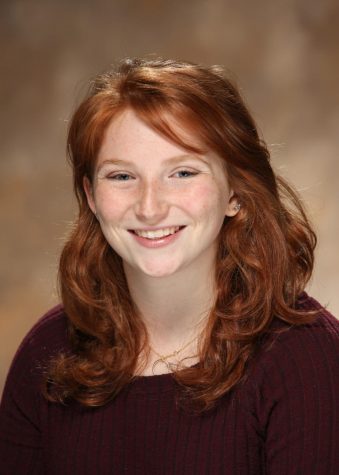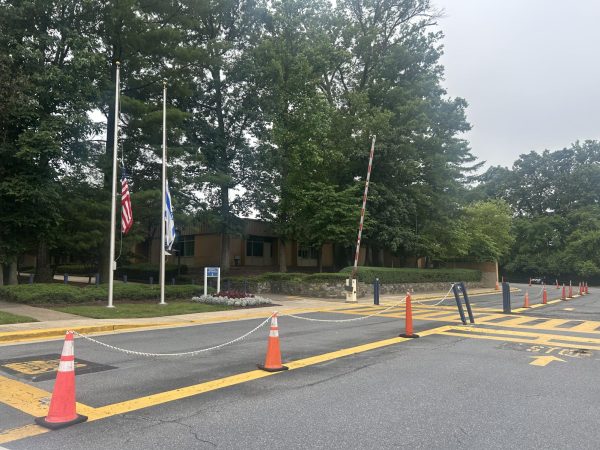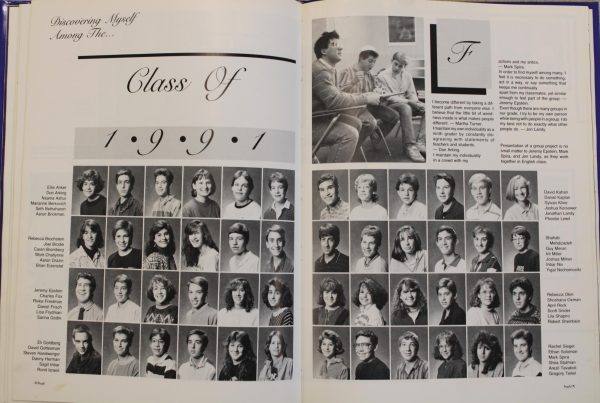Test policy gets makeover
A new high school test-taking policy prohibits teachers from answering content-based questions during assessments.
The administration crafted this policy after being approached by faculty members. Academic Dean Aileen Goldstein noticed an increasing trend in students getting hung up on asking questions instead of focusing on the test at hand, which in turn increased student anxiety. The new policy looks to solve that problem. According to Goldstein, it was also created with the goal of helping students become more self-reliant in test-taking settings.
“[Asking questions] is sometimes getting in the way of thinking and in the way of learning and in the way of trusting your own instincts,” Goldstein said.
Goldstein also noted that CESJDS has increasingly focused on mental health awareness recently. Specific areas the school has pinpointed are anxiety management and the layout of the brain through a teaching lens.
“We want students to have the most access with the least impediments to learning as possible,” Goldstein said.
Though the new policy was designed to curb anxiety, after it was introduced, many students, teachers and parents expressed concerns and had questions, according to Goldstein. High School Principal and Associate Head of School Dr. Marc Lindner sent out a follow-up email explaining the policy’s rules in detail and its overall goal. In the email, Lindner specified that if a student does not understand directions after reading them carefully, they can ask the teacher for clarification assistance.
For the last 12 of her 17 years of teaching at JDS, chemistry teacher Daniela Munteanu has implemented a no-questions-during-tests policy and said she has seen great results and supports the school’s decision to extend the policy to all classes and departments.
She first created her rule due to a concern over some students getting unfair advantages over others by asking questions. Munteanu also doubted her ability to answer specific questions without giving away hints. Therefore, she decided to make question asking completely off-limits.
“Students got used to [the rule] and they really never complained,” Munteanu said. “It was leveling the playing field for everyone.”
Like Munteanu, math teacher Victoria Ball regards the new policy positively. In the past, she has seen students become overworked and anxious by asking many questions and not relying on themselves for the answers.
In previous years, Ball has tried to refrain from answering questions about content on her test. Now with the new policy in effect, Ball is continuing that practice, but will not ignore a student if they raise their hand. Instead, she will always go up to students to see if their question is answerable. Ball also assures her students that if she noticed a mistake in a test question while grading, she will take it into consideration.
“I get how stressful things like this are and I’m hopeful that most students, most of the time, can trust that their teachers have their best interest[s] in mind,” Ball said.
Prior to Lindner sending out the follow-up email, many language teachers were concerned that they would be unable to help students who get stuck on a word that they cannot understand. Hebrew teacher Yaffa Dagony brought up this concern during the faculty meeting where the policy was first introduced to teachers.
Dagony was very pleased that her voice was heard and that the administration made a minor, but important change to the policy that allowed language teachers to further clarify words.
“Nobody is at the same level,” Dagony said. “Everybody has a different retention of vocabulary.”
Freshman Emma Landy also has concerns about the new policy. Landy has taken assessments this semester and feels that the new policy has negatives outcomes and makes her more anxious. She said that she perceives the new policy as a disciplinary action against the students and wishes that it was introduced in a less assertive and strict manner; however, Landy does understand the goals of the policy.
“I think that [the policy] is helping me, but I don’t really like that I have to spend extra time worrying about not having any of my questions answered,” Landy said.
Although the no-questions policy has been implemented already, it is not set in stone or permanent. According to Goldstein, JDS will be testing out other strategies in the future. The school will also be looking for feedback on the current policy from teachers and students throughout the year.
“Any change is hard at first,” Goldstein said. “I think everyone is managing that hump and then we’ll see what happens.”
This story was featured in the Volume 36, Issue 2 edition of The Lion’s Tale, published on Oct. 26, 2018.







